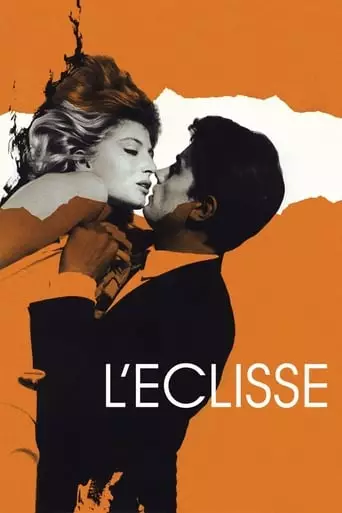
L'eclisse (1962) Watch Online Free
This romantic drama by Michelangelo Antonioni follows the love life of Vittoria, a beautiful literary translator living in Rome. After splitting from her writer boyfriend, Riccardo, Vittoria meets Piero, a lively stockbroker, on the hectic floor of the Roman stock exchange. Though Vittoria and Piero begin a relationship, it is not one without difficulties, and their commitment to one another is tested during an eclipse.
L’Eclisse, directed by Michelangelo Antonioni, is a poignant exploration of human isolation and the complexities of modern relationships. The film follows Vittoria (Monica Vitti), a young woman who, after ending a relationship with her fiancé, embarks on a tentative romance with Piero (Alain Delon), a stockbroker. Set in the vibrant yet emotionally desolate landscape of 1960s Rome, the film delves into the emotional and existential disconnections between the characters, mirroring the alienation of contemporary society. The film’s title, “The Eclipse,” refers not only to a literal solar eclipse but also symbolizes the emotional and social eclipses in the lives of the characters, particularly Vittoria’s sense of inner emptiness.
The film’s narrative is minimalistic, with long, meditative scenes that focus more on the internal emotional landscapes of the characters rather than traditional plot progression. Vittoria’s fleeting relationship with Piero, marked by moments of uncertainty and emotional distance, is juxtaposed against the modern, mechanized world that surrounds them. As the film progresses, the relationship between Vittoria and Piero grows more strained, culminating in a symbolic ending that leaves the audience with a sense of unresolved tension.
L’Eclisse is a masterful commentary on the themes of alienation, existential ennui, and the breakdown of human connection. Antonioni’s exploration of these themes is achieved through a combination of visual storytelling, symbolism, and a slow, deliberate pacing that allows the audience to fully immerse in the emotional isolation of the characters.
One of the film’s key symbols is the concept of “framing,” which is used to represent the characters’ entrapment within their own lives. Throughout the film, Vittoria is often shown through windows or door frames, symbolizing her inability to break free from the confines of her environment or emotional state. The framing device also highlights the contrast between the inner lives of the characters and the external world, emphasizing their sense of detachment.
The film also critiques the rise of consumerism and the alienating effects of modernity. The sterile, impersonal world of finance and commerce is contrasted with the personal, emotional void that the characters experience. The stock market, where Piero works, becomes a metaphor for the emotional transactions that dominate the characters’ lives, where genuine connection is replaced by superficial exchanges.
L’Eclisse had a profound impact on cinema, influencing not only Italian neorealism but also the broader modernist movement in film. Antonioni’s focus on visual storytelling and the exploration of existential themes marked a significant departure from traditional narrative cinema. The film’s minimalist style and slow pacing, while initially divisive, have since been recognized as innovative and deeply influential. Critics have praised the film for its ability to evoke a sense of emotional emptiness and alienation without relying on conventional dialogue or plot.
The film’s ambiguous ending, where the characters remain trapped in their own emotional and social worlds, challenges the audience to reflect on the nature of human connection and the limitations of modern life. L’Eclisse remains a seminal work in the history of cinema, often cited as one of the greatest films ever made.
After watching L’Eclisse, you may feel a deep sense of melancholy and introspection. The film’s exploration of emotional isolation and the inability of its characters to connect on a meaningful level leaves a lasting impact. The ambiguous ending, where the characters remain trapped in their own emotional worlds, may evoke a feeling of existential unease or even frustration. However, it also offers a profound reflection on the nature of human relationships and the alienating effects of modern society. You may find yourself contemplating the emptiness that pervades the lives of the characters and reflecting on your own connections with others in the context of the modern world. The film’s visual beauty and symbolic depth will likely linger with you long after the credits roll, leaving you with a sense of both awe and contemplation
